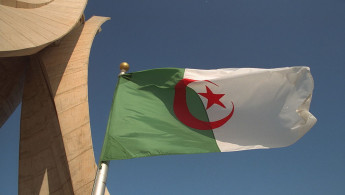Algeria probes rejected presidential hopefuls for fraud
A court in Algiers said Thursday it was investigating rejected presidential hopefuls for alleged endorsement fraud after "signature sales" by elected officials, state news agency APS reported.
Lotfi Boudjemaa, attorney general at the Court of Algiers, told APS that "more than 50 elected officials who were interviewed admitted" to having received money to endorse hopefuls for the upcoming presidential election.
They unlawfully received amounts ranging from 20,000 to 30,000 Algerian dinars ($148 to $222) in exchange for signing endorsements for the candidates.
Three hopefuls, who were disqualified from the race and are suspected of involvement in the fraud, "will be arrested", Boudjemaa said.
To qualify to appear on the ballot, candidates are required to present a list of at least 50,000 individual signatures from registered voters or from 600 members from at least 29 of Algeria's provincial assemblies.
Only three hopefuls, including incumbent Abdelmadjid Tebboune, had their candidacies approved for the 7 September election.
Abdelaali Hassani of the moderate Islamist party the Movement of Society for Peace and Youssef Aouchiche of the centre-left Socialist Forces Front are the two candidates who will stand against Tebboune.
The other 13 hopefuls all had their candidacies rejected after failing to muster the required number of signatures of support.
A former prime minister under longtime president Abdelaziz Bouteflika, who was ousted during mass protests in 2019, Tebboune has overseen a crackdown on the Hirak movement that led the protests.
Taking advantage of the restrictions on gatherings required during the Covid pandemic, Tebboune's administration banned demonstrations by Hirak and stepped up prosecutions of dissident activists, journalists and academics.
In February, human rights watchdog Amnesty International said that five years after the pro-democracy protests erupted, Algerian authorities were still restricting the right to freedom of expression and peaceful assembly.




 Follow the Middle East's top stories in English at The New Arab on Google News
Follow the Middle East's top stories in English at The New Arab on Google News
![A group of Palestinians, foreign and Israeli activists gather to participated in an olive picking event on the land in the town of Battir, which is under threat of confiscation by Israel in Bethlehem, occupied West Bank on 8 November 2024. [Getty]](/sites/default/files/styles/image_330x185/public/2182930803.jpeg?h=199d8c1f&itok=__0LgGsa)

![People gathered around the rubble of destroyed houses to search for survivors [Getty]](/sites/default/files/styles/image_330x185/public/2024-11/GettyImages-2184733820.jpg?h=199d8c1f&itok=NiM1LO2f)